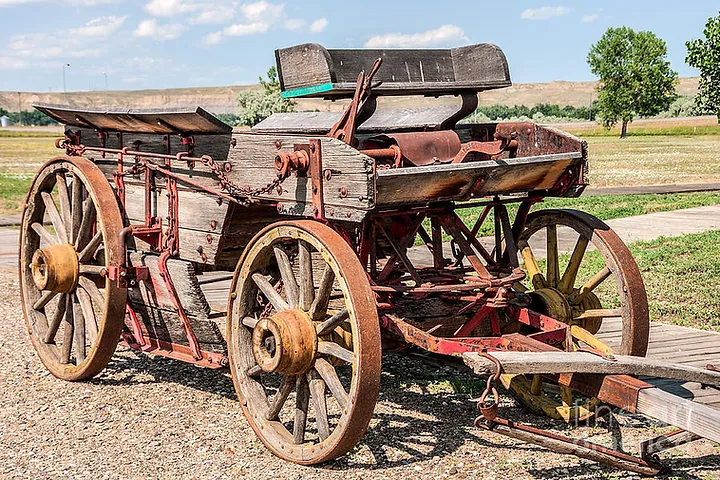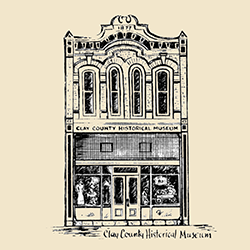A recent donation to the Museum yielded not only valuable information on the donor’s ancestors, but an undated (about 1935) clipping from The Daily Standard. The title “Tom Holt Relives Early Days In Clay County In Interview” was an eye-catcher and I thought I’d share.
“Born in Clay County Night After Family Arrived From North Carolina. Tom Holt, who will soon observe his eighty-fourth birthday anniversary is confined to his home temporarily with painful though not serious, ailment but he was able to enjoy a visit with the Daily Standard representative. Mr. Holt has had an active and interesting life and he retains a remarkable memory of events in early days of settlement in Clay county.
Thomas Holt was born on October 26, 1851, at old Haynesville on the night following the arrival of the family in Clay county from the old home in North Carolina. His grandfather who had been in the county for some years had arranged for their coming and had a house rented ready for them to move in. The young pioneer, Tom Holt spent most of his boyhood on a farm northwest of where Excelsior Springs now stands, that was owned for many years by a brother, the late Ike Holt.
‘I started out to make by own way when I was fifteen years old’, Mr. Holt related. ‘I worked for a neighbor, Brack Holton. I remember he was the first man to have the post office at excelsior Springs. Then I had a job with old uncle John Nichols; he never worked on Saturday afternoon, sometimes I would ask him if there wasn’t something I could do and he would say, “well, you might go to Claysville to get the mail.” So I would get on the horse and go after the mail.’
Mr. Holt recounted one of the two or three happenings at old Greenville incidents which caused this otherwise quiet and peaceable town to get a reputation among certain Clay county citizens as being a pretty tough lace. At that time Greenville was a thriving little settlement, with stores, blacksmith shop, churches and wagon shops.
‘I was just a boy, but I remember well the trouble they had at old Greenville. It was just after the war, and everyone had to register at the voting precinct. Well, a wagon load of voting officials of one political party came up to take charge of registering at the polls. They made everyone take an oath that would really keep those of the other party from voting. These men were armed, too, all of them had old fashioned muskets. But a bunch of men from the neighborhood got together and ran the voting officials out of town. They made them get back in the wagon and then about thirty or forty men followed them for a long way. Of course, I was just a kid then, but I went along with them to see what was happening.’ And Tom Holt chuckled at the recollection.
‘I can remember when Excelsior Springs was only fields and bush. Another young man and myself camped near where the Elms hotel now stands while we were hauling railroad ties to Missouri City. It was too far to go home every day. At teat time most of the bottom land where Excelsior Springs now is was cleared off and there were fields of wheat and corn. The hills were all covered with brush. As I remember it there was only one house there and it was a log building standing about where east broadway is now,’ Mr. Holt recalled.

‘Things certainly are different now to what they used to be,’ Holt remarked. ‘When we went to the Watkins mill it took a long day to make the trip there and back in the wagon. I remember well the time we went to Liberty to fix up a land deal back about 1880. I had a 133-acre place south of the Hugh Crossett farm then, and hadn’t thought about trading at all, but someone came along who wanted to buy it and we put it through in a hurry. My wife and I started out that morning in the old spring wagon and mules – the roads were muddy and bad all the way. We got down to Liberty about noon, got our land trade fixed up and started back about the same time the Story family did. Our mules were plodding along steadily in the mud and Storys passed us up. They said they would tell them we were coming. After awhile we came on to them again stuck in the mud so deep the team of horses couldn’t pull them out. We went on up to Prathersville to my wife’s father’s place and the Stories stopped there too, except one of the boys that was sent home on a horse. The old man told the boy, “Don’t you kill that horse”, it was already tired out from pulling in the mud. But things are changed now, the trip to Liberty could be made in an hours time in the automobile.
Tom Holt has lived for the past 52 years on his farm east of Mosby. His wife died a number of years ago. Mr. Holt has a small automobile which he drives to town and other places, and he is a better and more careful driver than many men younger by more than a score of years. His farm activities during the past few years have consisted mainly of helping with the chores and feeding cattle or hogs on the place. He raised a fine bunch of frying chickens this year. He has some 94 head of hogs on the farm now. And of course, he has attained a fair degree as a cook and housekeeper.”
Chery Carr Holtman, curator, Clay County Museum
